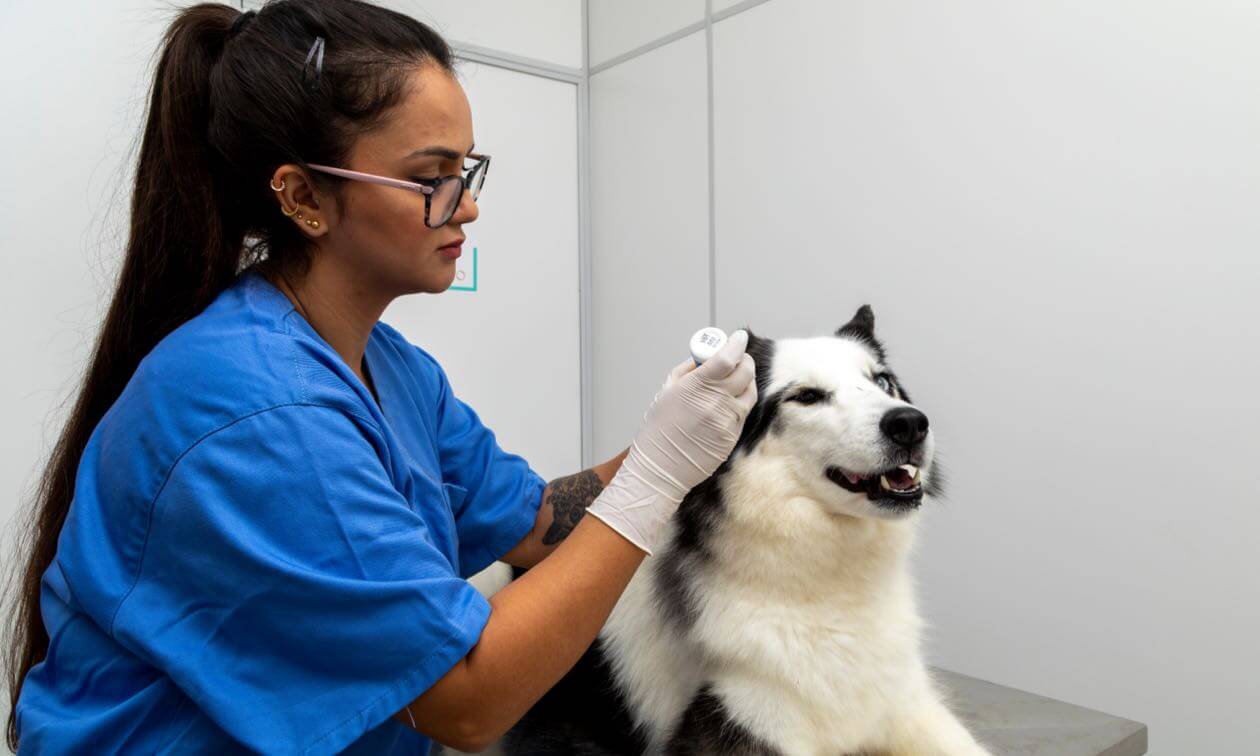The Advantages of Going To an Animal Hospital Greensburg for Normal Appointments
The Advantages of Going To an Animal Hospital Greensburg for Normal Appointments
Blog Article
Expert Tips for Pet Dog Nourishment From a Vet
Recognizing the nutritional requirements of family pets is critical for their overall health and wellness and long life (Animal Hospital Greensburg). With the multitude of animal food choices readily available, pet proprietors often find themselves navigating a landscape swarming with false information and misconceptions.
Understanding Nutritional Requirements
Recognizing the nutritional demands of pet dogs is basic to guaranteeing their overall health and wellness and health. Much like human beings, pets require a balanced diet that provides vital nutrients, including proteins, fats, vitamins, carbohydrates, and minerals. These nutrients play critical roles in numerous physical features, such as energy production, immune reaction, and tissue repair work.
They are made up of amino acids, some of which are necessary and must be gotten from food. Carbs serve as a key power source and can support digestive wellness when they include fiber.
Minerals and vitamins are required for metabolic processes and keeping general health. Each pet might have special requirements based on factors such as age, type, activity degree, and wellness condition. It is necessary to seek advice from with a veterinarian to determine the details nutritional demands customized to your pet dog's specific needs, guaranteeing they get optimal nourishment throughout their life stages. Proper understanding and attention to these nutritional parts can dramatically contribute to a pet dog's durability and top quality of life.

Choosing the Right Food
Choosing the proper food for pets is a vital aspect of meeting their nutritional demands. It is vital to think about variables such as age, size, type, and health and wellness condition when choosing a pet dog food. Young puppies and kittens call for formulations that sustain growth and growth, while adult pets require balanced diet regimens that preserve their wellness. Senior pet dogs might benefit from foods created to address age-related concerns, such as joint health and wellness or weight management.
When evaluating pet dog food options, try to find items that satisfy the Organization of American Feed Control Officials (AAFCO) requirements, which make sure that the food provides well balanced and complete nutrition. Active ingredients should be top notch, with real meat as the main resource of healthy protein. Avoid foods with excessive fillers, man-made ingredients, or by-products, as these can interfere with the total dietary value.
Consulting with a vet can give customized recommendations based on your animal's certain demands. In addition, transitioning in between foods should be done slowly to prevent intestinal upset. By taking these steps, family pet proprietors can ensure that they are offering their fuzzy friends with the best possible nourishment for a healthy and balanced and satisfied life.
Common Misconceptions Concerning Family Pet Food
Unmasking mistaken beliefs surrounding pet food is critical for making sure ideal nutrition for our fuzzy companions. One widespread misconception is that all grain-free diets are premium for family pets.

In addition, lots of pet dog proprietors think that "premium" or "natural" labels guarantee higher quality. However, these terms are frequently unregulated and do not necessarily show superior dietary worth. It is crucial to look at active ingredient checklists and dietary accounts rather.
Special Considerations for Various Types
When it pertains to pet nutrition, unique factors to consider need to be taken into account for different types, as each breed can have unique nutritional requirements and level of sensitivities. For example, large types such as Terrific Danes and Saint Bernards are prone to bone and joint issues and might benefit from diets developed to support joint wellness, commonly featuring active ingredients like glucosamine and omega fats. Conversely, tiny breeds like Chihuahuas may call for higher calorie thickness to satisfy their energy degrees, straight from the source requiring formulas that are rich in nutrients yet reduced wholesale.
Additionally, particular breeds might be inclined to particular wellness worries, such as food allergies or sensitivities. Types like Labrador Retrievers might fight with excessive weight, calling for cautious section control and a balanced diet to keep a healthy and balanced weight. On the other hand, breeds such as Dachshunds might be extra vulnerable to spine issues, prompting a requirement for diet regimens that promote spinal health and wellness and weight monitoring.
Ultimately, comprehending these breed-specific nutritional requirements is crucial for animal owners. Consulting with a veterinarian can aid in selecting one of the most ideal diet regimen tailored to a private pet dog's age, health, and breed standing, guaranteeing ideal nourishment and health.
Importance of Regular Veterinary Check-Ups
Understanding the distinct dietary needs of different breeds is only one aspect of accountable pet dog possession; regular veterinary examinations play a vital function in keeping overall wellness. These exams are crucial for very early detection of health issues, ensuring that any index kind of prospective problems are addressed prior to they become serious. Routine check outs allow vets to monitor your pet dog's weight, oral health, and essential indications, which are essential indications of general health.
Additionally, routine exams allow vets to supply customized dietary guidance based upon your animal's specific health and wellness standing - Vet Mckinney. As pets age, their dietary needs may transform, and modifications might be required to stop weight problems or nutrient shortages. Preventive treatment, including vaccinations and parasite control, is additionally a fundamental part of these gos to, guarding your animal from numerous diseases
In addition to physical exams, these visits supply a superb chance for pet dog proprietors to talk about behavior adjustments or worries concerning their family pet's consuming practices. By focusing on regular vet visite site check-ups, pet dog owners can make sure a longer, healthier life for their fuzzy companions, ultimately boosting their top quality of life.
Conclusion
To conclude, making certain optimal animal nourishment needs a thorough understanding of individual dietary requirements, proper food option, and understanding of widespread misconceptions. Special considerations for different types have to be made up, and normal veterinary check-ups play an important function in checking wellness and nutritional adjustments. Adhering to AAFCO standards and consulting with veterinarians before making nutritional changes will improve the health of family pets, inevitably contributing to their durability and lifestyle.
With the multitude of pet food options available, pet owners frequently discover themselves navigating a landscape rife with misinformation and myths. Each pet dog might have one-of-a-kind requirements based on aspects such as age, breed, activity degree, and wellness standing. It is essential to think about elements such as age, dimension, breed, and wellness condition when choosing a pet dog food. Elderly pets might benefit from foods made to attend to age-related issues, such as joint wellness or weight administration.
Understanding the special dietary demands of different types is only one facet of accountable pet possession; routine vet examinations play a vital function in maintaining general health.
Report this page